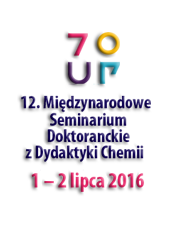
Conference venue
|
The Conference will take place in the Main Building of Pedagogical University of Kraków
 Kraków, the main city of south Poland, the ancient capital of Poland, seat of the second oldest university in central Europe (1364), has been a center for scholarship and politics for many centuries. It has traditionally served as a link between the cultures of the East and the West. A city of Gothic convents, Renaissance arcades, Baroque churches and Art Nouveau coffee houses, Kraków has always been an intellectual and artistic center. In the years 1491 - 1495, Mikolaj Kopernik (Nicolaus Copernicus) studied liberal arts there. Kraków, the main city of south Poland, the ancient capital of Poland, seat of the second oldest university in central Europe (1364), has been a center for scholarship and politics for many centuries. It has traditionally served as a link between the cultures of the East and the West. A city of Gothic convents, Renaissance arcades, Baroque churches and Art Nouveau coffee houses, Kraków has always been an intellectual and artistic center. In the years 1491 - 1495, Mikolaj Kopernik (Nicolaus Copernicus) studied liberal arts there.The famous anthropologist Bronislaw Malinowski was a native of Kraków and writer Joseph Conrad (Józef Korzeniowski) as well. Scientific achievements of the XIX century included the work of the following professors: the chemist Karol Olszewski (1846 - 1915) and the physicist Zygmunt Wróblewski (1845 - 1888), who were the first to liquefy oxygen and nitrogen from the air in 1883, and later also other gases; the physiologist Napoleon Cybulski (1854 - 1919), who explained the functioning of adrenaline; the physicist Marian Smoluchowski (1872 - 1917), the author of major works on the kinetic theory of matter; the chemist Leon Marchlewski (1869 - 1946), who conducted research on chlorophyll. After World War II, the cultural tradition was continued by Andrzej Wajda (Oscar - Academy Award 2000) and the music of Krzysztof Penderecki. Kraków is also home to two Nobel laureates in literature, Czeslaw Milosz (1980) and Wisława Szymborska (1996).
Krakow lies in the southern part of Poland on the Vistula River in a valley, 219 meters above sea level. Approximately 300 km north is Warsaw, the capital of Poland, and 100 km south are the Tatra Mountains. Ten kilometers from the center of Krakow, Salt Mine in Wieliczka (listed at the 1st UNESCO List of Human Heritage) is situated. Nazi Concentration Camp of Auschwitz and Birkenauis located seventy kilometers west of Krakow. |


